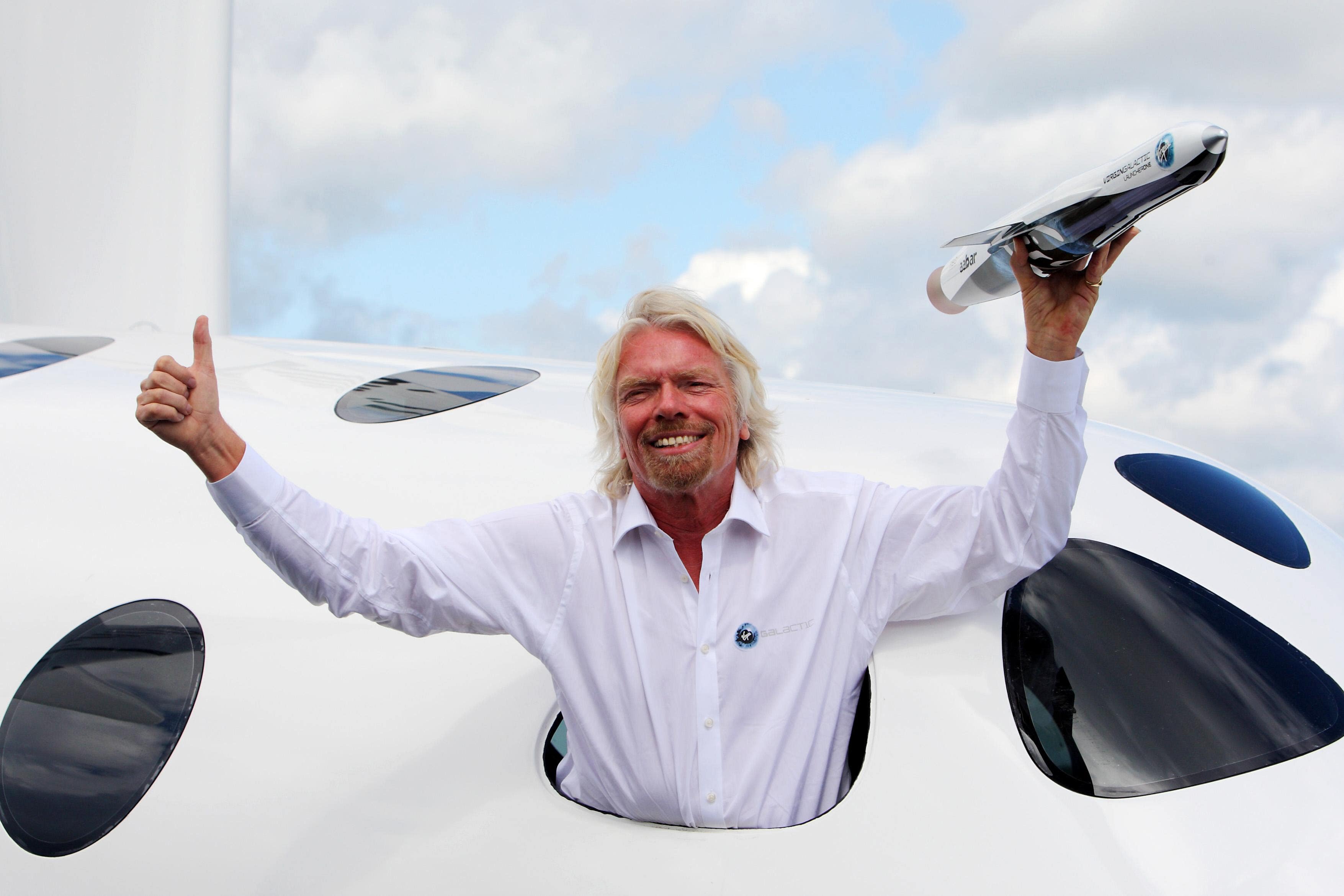Virgin Galactic to launch its first commercial spaceflight
Thirteen scientific research experiments will be conducted during the 90-minute flight.

Your support helps us to tell the story
This election is still a dead heat, according to most polls. In a fight with such wafer-thin margins, we need reporters on the ground talking to the people Trump and Harris are courting. Your support allows us to keep sending journalists to the story.
The Independent is trusted by 27 million Americans from across the entire political spectrum every month. Unlike many other quality news outlets, we choose not to lock you out of our reporting and analysis with paywalls. But quality journalism must still be paid for.
Help us keep bring these critical stories to light. Your support makes all the difference.
Virgin Galactic is to launch its first commercial flight to the edge of space.
A three-man crew from Italy will be on board the rocket plane operated by British billionaire Sir Richard Branson’s company, along with an astronaut instructor, and will carry out 13 scientific research experiments.
Among other things, they will measure the air quality with a view to informing future long-term missions, and record how certain liquids and solids interact in microgravity conditions and in different temperatures.
The launch of the spacecraft, called VSS Unity, is due to take place at 4pm British time from Spaceport America in New Mexico, and the flight will last 90 minutes.
The spaceflight, dubbed Galactic 01, will collect data through wearable payloads and sensors, and autonomous payloads mounted in the cabin.
Virgin Galactic said its first commercial spaceflight represents a new era in government-funded, commercial human-tended research missions.
The launch comes a month after Sir Richard’s Virgin Orbit announced it was ceasing operations months after a mission failure in the UK.
In January the company based in California sought to complete the first satellite launch from UK soil, with hopes the mission would be a major stepping stone for space exploration from the UK.
But the LauncherOne rocket failed to reach orbit and saw its payload of US and UK intelligence satellites dive into the ocean.
Subscribe to Independent Premium to bookmark this article
Want to bookmark your favourite articles and stories to read or reference later? Start your Independent Premium subscription today.